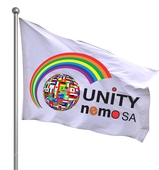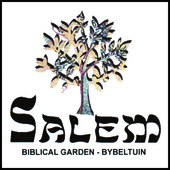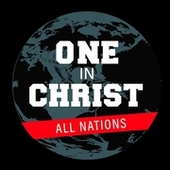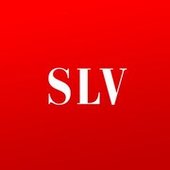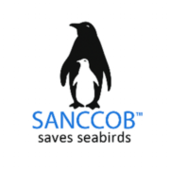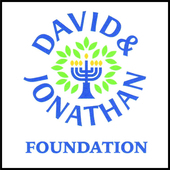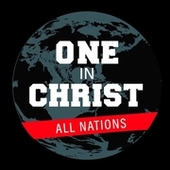Ashley & Rosemarie Cloete
|
Website:
http://www.nemosa.co.za/pages/15-Unity
|
More info |
Welcome to Ashley & Rosemarie Cloete's page
God’s Hand in our Lives
The respective childhood experiences of my wife Rosemarie and me are so vastly different. Rosemarie was born and bred in the compound of the evangelical southern German monastery Maulbronn in the post World War II era until the family had built a house in nearby Muehlacker. There she spent her teenage years and from there Rosemarie commuted to the city of Stuttgart for her vocational training in the educational field. The common denominator is that both of us were raised in stable Christian families. Both of us became followers of Jesus fairly early in our lives
My first years were spent in District Six, the slum area of Cape Town in the late 1940s, until we moved to the rural suburb of Tiervlei, that was later called Ravensmead. Strongly influenced by a Pentecostal young friend as a teenager, I was however soon opposing some of the Moravian church traditions on biblical grounds with a rebellious arrogant attitude.
At this time Rosemarie was squeezed between a Nazi-indoctrinated father and a mother who loved Jews. She refused to promise him to refrain from marrying a foreigner or a pastor. Her religious instruction teacher at school and her mother’s love for books added up significantly to influence her towards loving the Jews. The autobiography of Anne Frank was quite formative.
The major change in my own life happened at Christmas 1964 when I was spiritually empty, just before participation in a beach evangelistic effort in Harmony Park near Gordon’s Bay in the Cape. I had just finished my teacher training. A period of evangelistic activism followed. I was elected to the executive of the national Moravian Youth Union in January 1967. Just over a year later the passing on of one of my spiritual Moravian heroes became the springboard for my acceptance of a study offer to go overseas.
I was initially determined not to get married to a German because this would have meant exile from apartheid South Africa. I hoped to play some role in racial reconciliation back home after my return. This was strengthened towards political activism as I read books in Germany that were banned in my home country.
I met my future wife Rosemarie in May 1970 in an infatuation-at-first-sight encounter in Stuttgart. I returned to the Cape in October 1970. The romantic experiences around my love for Rosemarie Goebel and an intensive correspondence gave me a new determination – to fight apartheid tooth and nail to enable me to return to that country one day with her and any children the Lord would give us. The importance of the visible expression of the unity of followers of Jesus grew further after my return to my home country in October 1970. However, in a rather overdrawn and misguided anti-apartheid activism, I joined the Christian Institute (CI) soon thereafter.
Rosemarie had to fight racial and xenophobic prejudice in Germany. The prohibition of our friendship by her parents, who had suffered tremendously because of our relationship, ultimately brought us to the point of leaving it to God to bring us together again. He not only did that sovereignly but also restoration of peace in their family followed after our marriage in 1975 in Germany. This effectively ushered in the exile from my beloved home country.
During the final part of my theological studies in Bad Boll, near to Stuttgart in Southern Germany, the legacy of Jan Amos Comenius, the 17th century theologian and last bishop of the old Czech Unitas Fratrum (Unity of the Brethren) and Count Zinzendorf, the leader of the Renewed Moravian Church, became very dear to me. I was ordained as a Moravian minister in September 1975. Thereafter Rosemarie and I left for West Berlin where I co-pastored a Moravian congregation. Activism in the wake of the Soweto massacre of June 16, 1976 catapulted me into activism for peaceful opposition to apartheid.
Rosemarie and I served the Lord in the Moravian Church initially quite joyfully as the second pastoral couple in Berlin, but our intention to dedicate our eldest son Danny - instead of having him christened - threw its shadows ahead towards our three-year stint in Utrecht (Holland). In Berlin I also grappled seriously with the global economic inequality. Activism in the wake of the Soweto massacre of June 16, 1976 catapulted me into activism for peaceful opposition to apartheid. This led to a connection to Moral Re-armament,<!--[if !supportFootnotes]-->[1]<!--[endif]--> which stimulated my use of the pen in various ways.
In September 1977 we moved to Broederplein in the historical town of Zeist in Holland. From there Rosemarie and I were due to serve the Moravian congregation of Utrecht of which the bulk of the congregants had origins in Surinam (South America). Soon after our arrival there we heard that Chris Wessels, a long-time friend had been imprisoned because of ‘political’ involvement. My activist spirit was aroused. Shortly hereafterthat Dr Beyers Naude, our keynote speaker Youth Rally just before my departure from South Africa in 1973, was banned. (Had we come to Holland a little earlier, Dr Beyers Naudé and his wife Ilse would have been our guests as well. In the years thereafter, we would give sleeping accommodation to the guests of the Rapparliés. Dr ) Just over a year later I was involved with advocacy on behalf of Dr Beyers Naudé, urging Dutch Reformed church leaders to get his ban lifted. This finally happened in 1984.
The period of service in the Moravian congregation of Utrecht was fraught with tension from the beginning of 1978 to mid-1979. My activism for racial reconciliation and equality in my beloved South Africa and the yearning to return homebound, was not appreciated at all. In fact, this also caused some strain in our happy marriage, especially when a tumour at Rosemarie’s thyroid gland was discovered in May 1978. This caused extreme bewilderment and thus subsequently deep relief when the tumour turned out to be benign. This enabled a visit to South Africa in Oct/Nov 1978 with her and our son Danny. My politico-religious activism to get the South African Moravian Church actively fighting apartheid almost led me departing from there – never to return! God intervened however. God used Dr Beyers Naudé and the congregation where he worshipped to supernaturally heal me of my intense bitterness and anger. The result that I was thereafter more determined than ever to work towards racial reconciliation in South Africa. This transpired via letters to the government and correspondence with Dutch Reformed theologians, notably with Prof. Johan Heyns and Dr Nico Smith. (Subsequently I collated the correspondence under the title Honger na Geregtigheid. This would finally lead to the publication of a part of this work What God joined together in 2015)
A further sequels of our visit to South Africa was not only that Roseamrie was pregnant, but she and Danny also contracted Hepatitis. Against the advice of our house doctor, we decided not to abort the pregnancy. God blessed us with a healthy son that we aptly named Rafael.
The tension between me and the Broederraad (Church Council) of the Utrecht Moravian congregation increased significantly. My willingness to bring financial sacrifices for the fight against apartheid turned out to be counterproductive. Furthermore, extreme activism on my part, hoping that the European Moravian Church at large could start erecting signs towards stewardship, which could facilitate more equality globally, was not helpful.
Matters came to a head in July 1979 when I deemed to have discerned the scriptural untenability of infant christening. This led to my resignation as Moravian pastor the following year which co-incided with the report that my sister back home had contracted leukaemia.
To me the prayer unity in Christ and the lessons in spiritual warfare I had learned at Harmony Park in 1964, remained the spur for any Church action. The subsequent visit to South Africa at the end of 1980 increased my anti-apartheid activism however, to the extent that I became callous and uncompassionate. God stepped in once again, this time keeping me in the country for six months after my sister had passed away to assist our brother-in-law and his children.
During six extremely tense months in 1981 I was teaching at a politically very vibrant Mount View High School in the township Hanover Park. Simultaneously I was involved low-key with the evictions of Black women of Crossroads and KTC. In later years I also endeavoured to apply the lessons learned in attacks on the walls of Communism and Islam. Harmony Park was also my model as I tried to get Cape Church leaders working together on behalf of the harassed Black women of Crossroads and KTC in the first half of 1981, Rosemarie was helping ‘illegally’ as a volunteer in a school in Nyanga. After many traumatic experiences, she had enough of South Africa. She was hereafter prepared to serve God with me and our children anywhere in the world as long as it was not South Africa.
We returned to Europe in June 1981, unaware of the effect, which our involvement in Crossroads and Nyanga would continue to have. Churches now started to take a clearer stand in opposition to apartheid laws. The successful fight of the women of Nyanga and Crossroads ushered in the scrapping of the hated influx legislation in 1985. Our involvement via Rev. Douglas Bax, a friend of my seminary days, also sparked a political debate that eventually led to the abolition of another keystone of apartheid legislation, viz. the Prohibition of Mixed Marriages Act.
God had to deal with me in another way. When I discovered that the biblical Joseph never returned to Israel, I was also ready to spend the rest of my life abroad. Although the S. African prohibition of racially mixed marriages was repealed, the door to a return did not open for us as yet.
In the Dutch town of Zeist, where I spent the bulk of my enforced exile of close to 20 years, we started a local evangelistic agency in October 1982, the Goed Nieuws Karavaan. Outreach to children and youth was the kernel of this holistic evangelistic effort to reach Muslims with the Gospel. The networking among doctrinally quite diverse backgrounds demonstrated to all and sundry that it was possible to work together on a sound biblical basis if our unity in the Lord would be stressed and doctrinal differences not allowed to cause disruption. The friendship to the family, who had returned as Moravian missionaries from Jamaica was closely linked to this ministry. Rens Schalkwijk, who had been a teenager would become the link ultimately to the Regiogebed (Regional Prayer) for Driebergen-Zeist that started in August 1988 as the first one of Holland. This also signalled my regular participation in informed intercession based on concrete formation. This got commonly known as spiritual warfare.
In the Regiogebed we had the special joy to become a part of God's mighty work to achieve spiritual breakthroughs elsewhere. Very special was the spiritual victories we could enjoy via big changes in answer to prayer, first in Hungary and then in East Germany. This was part of seven years of prayer against Soviet Communist oppression. The big prize was the demolition of the Berlin Wall on 9 November, 1989. That signalled the beginning of the end of Soviet Communist domination of Eastern Europe and of Communism at large as a global ideological force.
The Regiogebed of October 4, 1989 was unforgettable when the whole prayer meeting focused on my beloved South Africa. The event targeted strife-torn South Africa. Unknown to us, the new State President F.W. De Klerk was due to meet Archbishop Tutu and Dr Allan Boesak a few days later. In the spiritual realm our prayer event – along with other prayer events at that time - prepared the big changes in the country the following year.
In 1988 things had started to happen in respect of a return to the African continent. In preparation for missionary work in another African country, I applied for a Dutch passport. Just over a year later I had one. The possession of a Dutch passport opened doors to visit Romania in October/November 1990 and West Africa. These visits stimulated my activism in fighting Communism and fighting the ideology Islam respectably.
In October 1989 we started to get ready to go to Cote I’voire as a family with Worldwide Evangelisation for Christ (WEC) International. This door to West Africa closed again a few months later. Internationally things had changed tremendously however, so that we were doing the WEC missionary orientation course in London during the first term of 1991, heading for South Africa.
Soon after our arrival in the Mother City in January 1992 we were led to minister predominantly among Cape Muslims. Praying for the residential area Bo-Kaap ushered in our involvement in the prayer movement at the Cape. Our involvement in the Muslim stronghold had prayer at its core. Rosemarie got befriended to many ladies thee via craft club from which various different ventures ensued. A fortnightly prayer event in a Bo-Kaap home for the area evolved into a monthly one there and another one in our home in Tamboerskloof where we prayed for the Middle East, for Jews and Muslims. One of the participants, a Muslim background follower of Jesus, was God’s instrument to nudge us towards Friday lunch time prayer. This weekly event spawned many strategic outreach initiatives, notably on Saturday mornings in Groote Schuur Hospital where we focused in the ministry to cancer patients and Muslim Evangelism teaching at different places. A weekly children’s club, first in Hanover Park and later in Salt River provided networking opportunities. Various colleagues later became leaders in their own right not only at the Cape but also as missionaries in other countries.
We joined the Cape Town Baptist Church in 1993 after a few people showed interest in praying in Bo-Kaap. A weekly prayer event with other city pastors evolved into a ministers’ fraternal of which I became the co-ordinator. An effort to change the name of Devil’s Peak was one of the common endeavours. In the new millennium I was once again part of the core group to get the name changed. Efforts to see the body of Christ operating in united prayer and action via mission agencies and local churches remained very much our heart beat, but to implement this still is a big challenge.
Further studies in Islam fed my hobby historical research which ultimately spawned various manuscripts, notably around the spiritual roots of Islam. After collating stories of those who had come to faith in Christ Research for a booklet Op soek na Waarheid, that was later translated as Search for Truth, brought us to concentrate on discipling Muslim background believers. This in turn led us to acquire a discipling house for those who had become victims of religious persecution and eviction by their families. Teaching believers from Muslim background covertly became a focus of our ministry. This also led to a new ministry at factories during their lunch hour and some dignified financial assistance via a draft club for female MBBs at our discipling house.
Around October 2003 we felt led to change the focus of our ministry to foreign Muslims who had come to the Cape. This led to a crisis in our relationship to the WEC International national leadership and ultimately to our resignation as WEC missionaries with effect from July 2007. Teaching of basic English and a handcraft workshop met the most elementary needs of refugees. We started negotiations with Floyd McClung who had come to Cape Town with his wife Sally in 2006 to pioneer All Nations International here. In mid-2008 we became missionaries linked to that agency. We had already started with networking with various other mission agencies and local churches as Friends from Abroad of which we had become the founder leaders in 2007.
At the beginning of 2008 my wife Rosemarie was deeply challenged at our CPX course to 'tithe' her ministry time. She responded by wanting to be available to bless Jews. This would mean quite a challenge for her as a German and the Nazi history of her nation. Soon thereafter she was asked to share the story of her upbringing as a post-World War11 child in Germany. At a meeting in Durbanville on 31 May 2008 Rosemarie. A Polish holocaust survivor was the other speaker at this occasion. In a new season of ministry she was asked to come and share he story in various Jewish groups.
For loving outreach to Jews I was challenged at the beginning of 2010. I was deeply touched when I discerned that Isaac and Ishmael, the two eldest sons of Abraham, had actually buried their father together (Genesis 25:9). The evident reconciliation – after around 75 years - was probably preceded by confession and some remorse. We linked up formally in this ministry by joining the Lausanne Consultation for Jewish Evangelism (LCJE). On 11 October 2010 the Lord ministered to me from Romans 1:16 when we received the Quarterly Bulletin. That edition of the LCJE Bulletin highlighted the legacy of Moishe Rosen, the founder of Jews for Jesus. He highlighted 'Jews first' from Romans 1:16. I was especially moved again how the Jews were side-lined by our Christian ancestors. (In my research I had been discerning anew how our Christian forbears have haughtily stated that the Church replaced the nation of Israel and the Jews.)This led to the beginning of Ishmael Isaac Ministries and another attempt at Muslim/Jewish dialogue and reconciliation, an effort to link Messianic Jewish believers and Muslim background believers at the Cape.
The return of Pastor Baruch Maayan and his family from Israel soon hereafter represented another paradigm shift. This soon led to a weekly prayer meeting for Israel and the Jews, and to Highway meetings every last Saturday of the month in Sea Point and later in Hope Street. A close link developed between us and the Maayan family. A visit to Israel followed in 2011 and ultimately to the building of a north facing prayer facility at our home that we dubbed the Isaiah 19 prayer room. Here the vision grew to see simple house fellowships come into being from the Cape to Jerusalem.
The ISIS crisis in the Middle East caused a stream of refugees going to Europe. As we considered retirement and passing on the baton of the leadership of Friends from Abroad, we feel challenged to use our experience at the Cape to assist in the ministry to Syrian refugees in Holland.
Back to Listing Back Home



